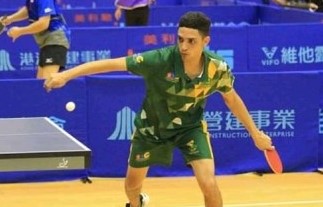(SPOILER ALERT: This article reveals key plot elements of the 1986 movie "Stand By Me," as well as its source material, the 1982 novella "The Body" by Stephen King. Please get caught up on essential American culture before proceeding. We'll wait.) Chris Chambers deserved better. A good-hearted kid from the wrong side of the tracks, he fought to rise above his violent environment and make something of himself. Ultimately, though, it was his big heart which made him a tragic victim of the very violence he fought so hard to escape. Brilliantly portrayed by a 14-year-old River Phoenix, who too would die tragically young, Chris Chambers was one of four friends on an adventure in the timeless coming-of-age movie "Stand By Me." As described by protagonist and narrator Gordie Lachance (Wil Wheaton), the at-risk youth Chris Chambers could easily have succumbed to the low expectations he inherited from his family, but instead fought to escape poverty through education. After graduating from law school, Chris happened to be at the same restaurant where a fight between strangers broke out. Still the good-hearted kid "who had always made the best peace," in Gordie's words, Chris attempted to break it up and was fatally stabbed in the neck for his efforts. Sometimes life pulls a switcheroo and imitates art. Case in point: South Africa's Paralympic table tennis player Theo Cogill (pictured) has a remarkably similar story, but thankfully with a very different outcome. Growing up in Bonteheuwel, a township near Cape Town, South Africa, Cogill lived amid what Eyewitness News describes as "crime and other social ills." He fell in love with table tennis at 12 when his father improvised a crude table, resting a door atop two chairs. Working with local coaches, talented left-hander was soon representing South Africa in international events. In 2011, Cogill's life changed forever. Attempting to break up a fight, he was stabbed in the neck. Sound familiar? While the injury was not fatal, Cogill was paralyzed. Told he may never walk again, Cogill incorporated table tennis into his physical therapy and "gutted it out like he always did" (again, Gordie describing Chris). Ten years later, Cogill can play his beloved sport again. His permanent nerve damage places him in Class 10 (standing) para table tennis events. Now, his skills place him in the Tokyo 2020 Paralympics. Like Chris Chambers, Theo Cogill deserved better. With a big heart and the kind of work ethic peculiar to kids from the wrong side of the tracks, he got it.
More at EWN
